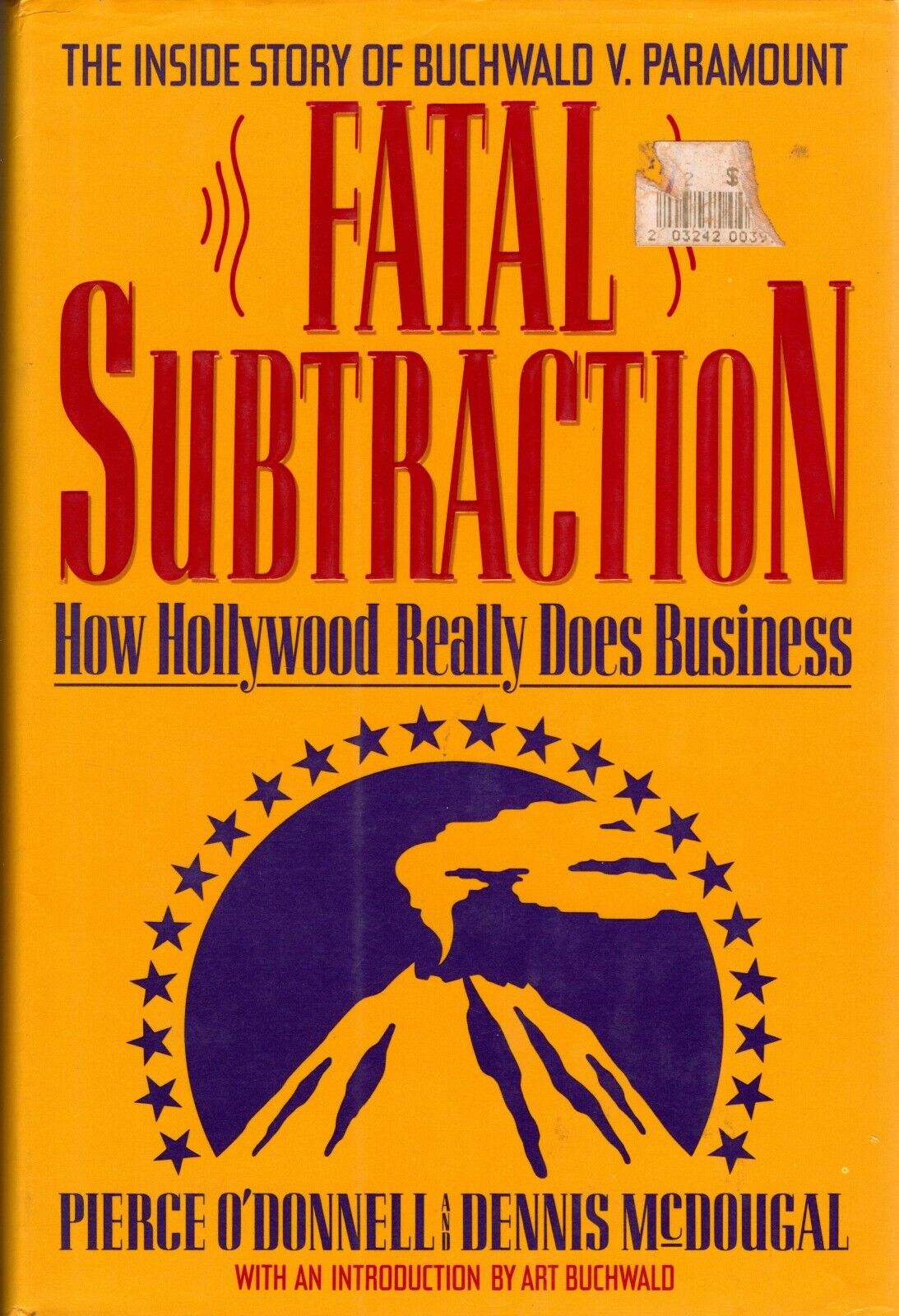 Fatal Subtraction, written by Pierce O’Donnell and Dennis McDougal, is an engrossing account of the legal battle between Art Buchwald, a renowned newspaper columnist, and Paramount Pictures, one of Hollywood's most powerful studios. The book delves into the murky world of Hollywood contracts, accounting, and the exploitation of creative talent, providing a compelling exploration of the film industry's darker side.
Fatal Subtraction, written by Pierce O’Donnell and Dennis McDougal, is an engrossing account of the legal battle between Art Buchwald, a renowned newspaper columnist, and Paramount Pictures, one of Hollywood's most powerful studios. The book delves into the murky world of Hollywood contracts, accounting, and the exploitation of creative talent, providing a compelling exploration of the film industry's darker side.
The story begins with Art Buchwald, who had an idea for a film titled "King for a Day," a comedy about a poor African man who gets an opportunity to visit America. He collaborates with producer Alain Bernheim and sells the idea to Paramount Pictures. Over the course of several years, the project undergoes multiple changes, and Paramount eventually releases a film called "Coming to America" in 1988. The film, starring Eddie Murphy, becomes a blockbuster hit, grossing over $288 million worldwide.
Buchwald and Bernheim, however, are not compensated for their contributions. When they realize that the film's concept is strikingly similar to their original idea, they decide to sue Paramount Pictures for breach of contract and copyright infringement. The case becomes a high-profile battle, pitting Buchwald and Bernheim against the powerful studio and attracting significant media attention.
O'Donnell, who served as Buchwald's attorney, and McDougal, an investigative reporter, provide an insider's perspective on the case. They uncover the workings of the "Hollywood accounting" system, which allows studios to manipulate profits and minimize payments to creative talent. Paramount claimed that "Coming to America" did not make a net profit, despite its massive box office success, due to their accounting practices.
As the trial unfolds, it becomes apparent that this is not an isolated incident. Many other creative professionals have been victims of the same deceptive practices. The authors illustrate how the system is designed to exploit artists and writers, enriching powerful executives while leaving the creative forces behind major film projects with little or no compensation for their work.
The book exposes the murky side of the entertainment industry, revealing how studios use complex contracts, creative accounting, and legal intimidation to maintain control over profits. Buchwald and Bernheim's case serves as a wake-up call for the industry, highlighting the need for change and fairness in the treatment of creative talent.
Fatal Subtraction is not just about one legal battle; it sheds light on the broader issues of power, greed, and corruption in Hollywood. The authors meticulously document the case, providing readers with a comprehensive understanding of the complexities involved in the dispute. They delve into the personalities of the key players, providing insights into their motivations and shedding light on their roles in the conflict.
In the end, Buchwald and Bernheim emerge victorious, with the court ruling in their favor and establishing a precedent for future cases involving similar claims. The book serves as a cautionary tale for both aspiring and established creative professionals, encouraging them to be vigilant when it comes to their rights and the value of their work.
Fatal Subtraction is an enthralling and eye-opening read, offering a rare glimpse into the inner workings of Hollywood and the legal battles that shape the industry. The book is both informative and captivating, providing readers with a greater understanding of the challenges faced by creative professionals and the need for change in the way the entertainment industry operates.
###
Return to the reading list.
Note: The above summary was generated by ChatGPT.
